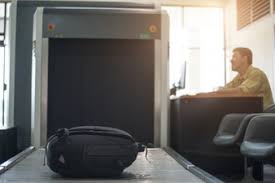“Canada’s user-pay approach is discriminatory, distortionary and ultimately self-defeating”
Dr.Barry Prentice, Professor of Supply Chain Management, Associate of the Transport Institute
Another announcement was made yesterday on future plans for CATSA, which the IAMAW is watching closely. The Act to make amendments is included in Bill C-97, an omnibus bill, a tactic that the Liberals and Conservatives use when wanting to make major decisions without much public debate.
The government claims that this is a necessary move in response to, “years of complaints of poor service and long line-ups.” The government is relying on CATSA’s reports and internal data, the sum of which state the agency cannot meet the challenge of increasing demands with limited resources.
Stan Pickthall, General Vice-President noted that, “for many years the federal government has made a profit from the Air Travellers Security Charge, yet the government does not send all of this funding to CATSA and security providers who deliver screening at the checkpoints.” Passengers in Canada pay a security fee that ranges from $14.96 to $25.91, depending on the destination, constituting some of the highest fees in the world. This revenue goes to the government, which takes a notable proportion of revenues. General Vice-President states that this is the root of the issue related to CATSA’s inability to meet future demands.
Costs are typically split between national governments, general tax revenues, airlines and passengers. The United States, a country notorious for privatization of most public services, has a mixed system when it comes to funding aviation security. Canada, on the other hand, has a user-pay system, and passenger fees are significantly greater than CATSA’s operational costs, and as such, there should not lack of financial resources for CATSA.
A study released in 2015 by the Journal of Air Transport Management looked at the costs of passenger fees, output, and operating costs of airports. The study indicated that there is no difference in operating and capital costs between the United States, Australia, New Zealand and Canada; however, in Canada passenger fees as increasing dramatically, while capital spending has been decreasing. This means that the costs are being passed on to the public.
The study also points out that when passenger fees increase, as they did in 2011, it resulted in 690,000 fewer passengers flying to/from Canada. This translated into, “foregone revenue totaling $ 227 million and an economic welfare loss of $22 billion.” Passing on costs to passengers is self-defeating.
In fact, “the proportion of international passengers does not seem to affect overall security costs in the European Union,” and they have several major hubs.
On the issue of poor performance and an inability to meet demands, measuring output is difficult in the aviation industry, and existing models do not encompass the realities of the job. But, one thing is certain. As capital spending decreases, the effects are felt throughout the agency, invariably affecting staffing. IAMAW members report having to do more with less, which may impact performance. Statistics show that at Pearson International Airport, 85% of passengers are screened in fifteen minutes or less, the same is true for Montreal and Vancouver.
What seems to be at play is a fabricated crisis to justify privatization. The Liberals and Conservatives have a track record of defunding public services to justify introducing either partly privatized services, or fully privatized public services. While the Liberals have critiqued the Conservatives of burying information in omnibus bills, they have resorted to much the same tactic.
The IAMAW campaigned against airport privatization, and forewarned that CATSA would be turned into an agency like NAV CAN. GVP Pickthall stated vowed that, “as the union representing the largest number of Screening Officers across Canada, the IAM will continue to advocate for our members who are very concerned about their ability to protect the safety of the travelling public. The federal government must provide adequate resources to ensure this occurs.”
-30-



